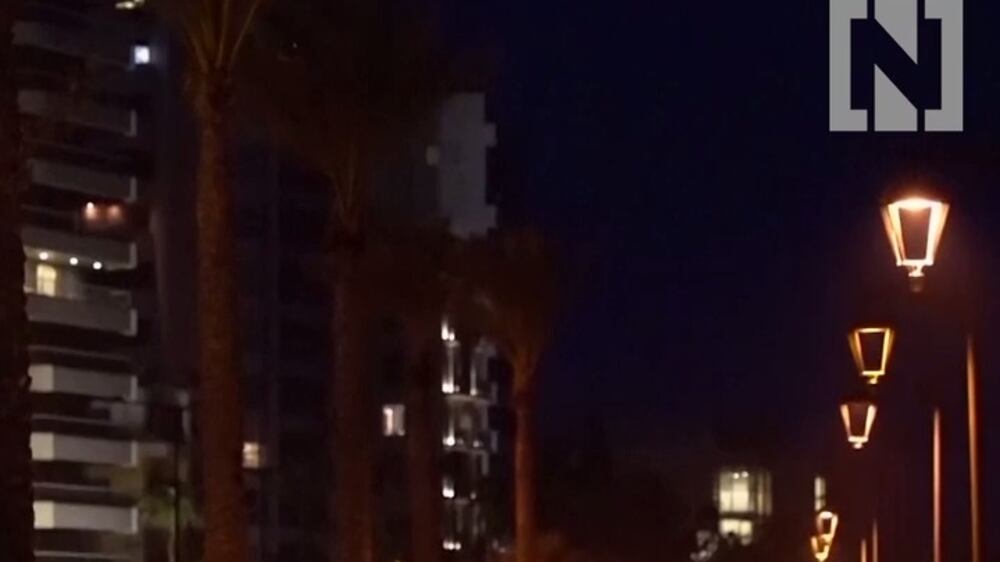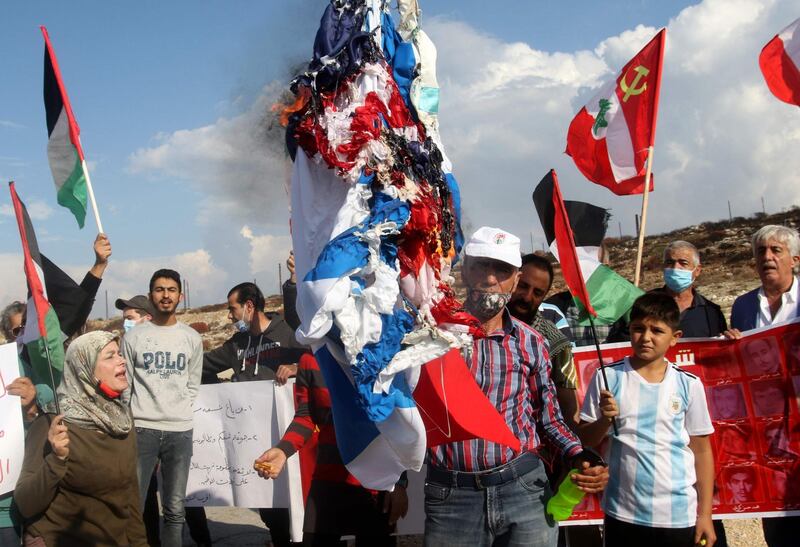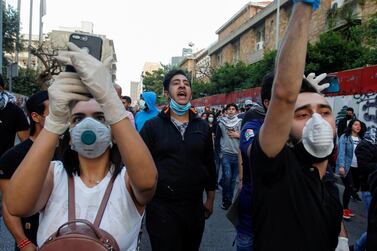Israel's Energy Minister Yuval Steinitz invited Lebanese President Michel Aoun to direct talks in Europe about their countries' disputed maritime border, a rare approach between nations still technically at war.
Israel and Lebanon opened negotiations on the border dispute under US and UN auspices last month to clear the way for offshore oil and gas exploration.
Last week, Mr Steinitz on Twitter accused Lebanon of undermining the talks by continually shifting its position and trying to widen the disputed area under negotiation.
Beirut streets near-empty as Lebanon's two-week lockdown begins

That sparked a response on the social media platform from Mr Aoun, who rejected Mr Steinitz's accusations that Lebanon was being inconsistent.
Mr Steinitz, in a series of tweets directed at Mr Aoun on Monday, in Hebrew and Arabic, said he had been "enjoying the dialogue that has developed between us in recent days".
"I am convinced that if we could meet face-to-face in a European country in order to have open, or secret, negotiations, we would have a good chance of resolving the maritime border dispute once and for all."
إنني على قناعة بأنه لو استطعنا الالتقاء وجها إلى وجه في إحدى الدول الأوروبية من أجل اجراء مفاوضات علنية أو سرية, لكانت لنا فرصة جيدة لحل الخلاف حول الحدود البحرية مرة واحدة وللأبد,
— Yuval Steinitz יובל שטייניץ (@steinitz_yuval) November 23, 2020
وبذلك سنستطيع أن نساهم في تعزيز مستقبل الشعبين الاقتصادي ورفاهيتهما. ي.ش. @General_Aoun
Contacted by The National, Mr Aoun's office refused to comment on Mr Steinitz's offer.
Lebanon and Israel have been in a state of war since the creation of Israel in 1948. Officials never speak directly to each other. Under Lebanese law contact with Israelis is a criminal offence.
The only official contact until recently is the once-a-month meeting between military officials from each side hosted by UN peacekeepers to maintain stability in South Lebanon. They address each other in English through the Unifil force commander and have been meeting since 2006.
But on October 14, Israel and Lebanon started negotiating their disputed maritime border in a similar set-up but in a large military tent outside the Unifil building to allow for social distancing measures required by the coronavirus pandemic. UN and US mediators are also present.
The US had been trying to bring both parties to the table for nearly a decade.
The two countries want to settle the issue to speed up offshore oil and gas exploration and cash in on lucrative deals with international oil companies, but the issue in Lebanon is a sensitive one.
Iran-backed Hezbollah and its ally Amal said that the negotiations do not mean that the two countries should normalise ties.
Israel and Hezbollah last fought in 2006 during a 33-day war that killed 1,109 Lebanese and 55 Israelis, most of them civilians.
Israeli drones and army jets regularly breach Lebanese airspace. On November 19, Lebanese media reported that the Israeli army launched flares in the night after an alleged infiltration through the closed border.
The maritime border negotiations are based on a map registered with the UN in 2011, which shows an 860 square kilometre area of sea that is disputed.
Lebanon believes the map is based on wrong estimates.
According to Lebanese energy expert Laury Haytayan, Mr Aoun's tweet confirms that it is now demanding an additional 1,430 square kilometres of sea farther south.







